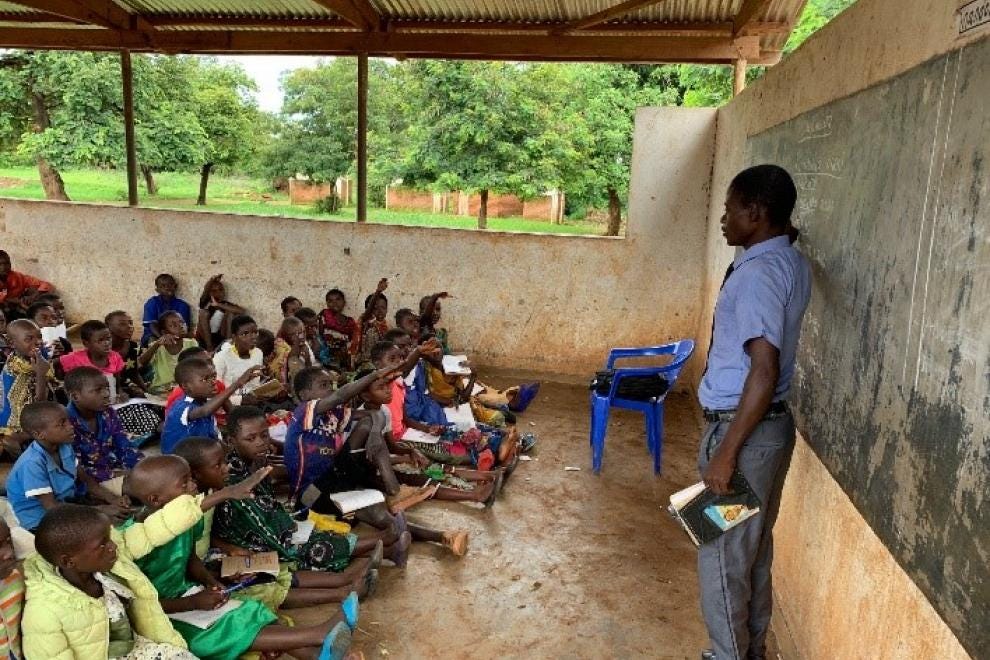Technology-Driven Education Initiatives in Malawi Face Sustainability Challenges
Tech advancements in education, social services helped Malawi amid COVID-19.

LILONGWE, Malawi-In the face of the devastation caused by COVID-19, with economies shattered and lives lost, technological advancements in education and social services offered a glimmer of hope. However, as these positive trends confront the reality of sustainability challenges, developing countries like Malawi stand at the forefront of this pressing issue, writes Mercy Matonga.
At the height of the pandemic, students in Malawi could be seen carrying laptops, iPads, or radio stations to access pre-recorded class lessons.
Technology played a crucial role in agriculture, health delivery, and commerce, aiding service delivery in unprecedented ways, particularly in the least industrialised nations.
The Ministry of Education in Malawi developed and broadcast 1,440 radio programmes known as Interactive Radio Instructions (IRI), enabling primary and secondary school learners to continue their education during the COVID-19 pandemic.
To ensure access for rural and ultra-poor families, the government distributed 10,430 solar-powered radios across the country.
Chikondano Mussa, Principle Secretary in the Ministry of Education, emphasised the success of this intervention and its impact on the ministry's current digitalization efforts.
The aim is to extend student access to educational content beyond emergencies, making e-learning an alternative pathway for those facing difficulties with classroom-based learning.
Mussa stated, "The education response in Malawi highlights the crucial role that digital learning plays in mitigating learning crises and demonstrates the future potential of educational technology (EdTech). The Ministry of Education is actively involved in the digitalization of education curricula as part of the National Education Sector Investment Plan (NESIP) for 2020–2030, which informed the first ten-year plan of Malawi 2063 (MIP1, 2021–2030). The ministry has developed a roadmap for curriculum digitalization, facilitated by the EdTech Coalition."
The World Bank, through the Equity with Quality and Learning at Secondary (EQUALS) project, provided an additional $5 million in response to the Malawian government's request to reinforce its COVID-19 response, particularly in supporting e-learning initiatives.
However, as the world begins to return to normalcy after the end of the COVID-19 pandemic as a global health emergency declared by the World Health Organisation (WHO), sustaining the gains of technological advancements in education presents challenges.
Abandoned home learning projects and unaccounted equipment are already evident across Malawi's education sector, according to various stakeholders.
Despite these challenges, partners such as the World Bank remain committed to the projects and express optimism about sustainability.
Hugh Riddell, World Bank Country Manager, stated that they continue to support e-learning projects, not only to address the needs of educational institutions but also as part of preparations for future pandemics.
Riddell explained, "The additional funds (AF) activities are therefore expected to scale up this intervention to ensure more students can continue learning in the event that the country experiences another pandemic, and in-person learning becomes untenable again."
The World Bank's pandemic intervention aims to support the development and dissemination of Open and Distance Education and Learning materials.
This includes the printing and distribution of educational materials, the production of radio and TV programmes to complement online modules, and expanding access to online modules, among other initiatives.
Students who have benefited from or continue to benefit from e-learning and other tech-based services praise the opportunities presented.
In a system already challenged by high teacher-student ratios, limited education materials, and overcrowded classrooms, these advancements have made a significant difference.
During the pandemic, the Unlocking Talent through Technology project, implemented in collaboration with the University of Nottingham and the University of Malawi, introduced an app for learning on tablets.
The children's progress was recorded and remotely monitored through a low-power server. The project was scaled up to benefit more students, heralding it as a major breakthrough for Malawi's education.
However, in public universities and primary schools, e-learning initiatives have significantly scaled down.
In Chikwawa district, for instance, wireless radio sets and tablets were distributed to facilitate e-learning, but according to teachers, the majority of the gadgets were lost along the way. Once schools returned to their regular routines, teachers failed to follow up on the gadgets and e-learning lessons.
Benedicto Kondowe, Executive Director for the Civil Society Education Coalition (CSEC), emphasised the need for clear and well-communicated accountability at all levels to support the effective implementation of such initiatives for sustainability.
Kondowe emphasised the importance of understanding roles and providing proper support to all stakeholders.
He stated, "There is a requirement for long-term plans for the use of a blended approach to education delivery that includes low-tech or no-tech safety nets, as well as support for teachers, so they can effectively engage learners. Coordinated leadership at all levels will be critical for long-term success, improvement, and adaptation to guarantee resilience against future educational disruptions."
As Malawi faces the challenges of sustaining technology-driven education initiatives, stakeholders must work together to address accountability issues and ensure long-term success and improvement.
The importance of support for teachers and the development of a framework for adaptation and resilience in the face of future disruptions are crucial to securing the future of education in the country.


